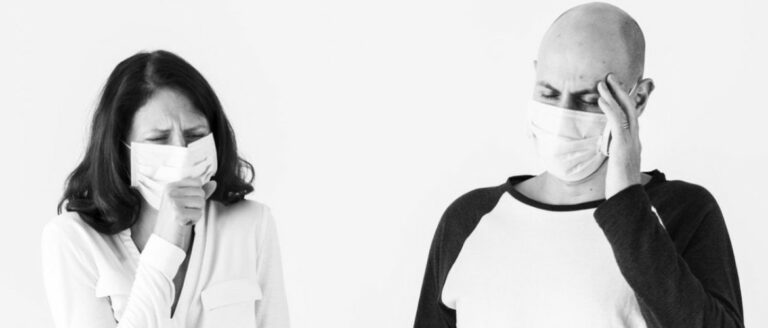High blood pressure also known as the medical term hypertension is the condition where the blood vessels have consistently raised pressure. This means that the exertion of the blood running through the arteries is persistently too high. This results in the heart working harder to pump blood to your body.
Blood pressure readings are measured in two numbers – a top number and a bottom number. The top number is called the systolic blood pressure which measures the force the heart applies on the artery walls each time it beats. The bottom number, diastolic blood pressure, measures the force applied on artery walls in between the heart beats.
Blood pressure is gauge by millimeters of mercury (mm Hg). Typically, hypertension is a reading of 130/80 mm Hg or higher. According to the American College of Cardiology [1] and American Heart Association [2], blood pressure reading is split into four categories.
- Normal blood pressure is 120/80 mm Hg or lower. This is also considered the ideal blood pressure.
- Elevated blood pressure is when the above number measures from “120” to “129” mm Hg and the below number is less than “80” mm Hg.
- Stage 1 hypertension is when the above number measures from “130” to “139” mm Hg or the below number is between “80” and “89” mm Hg.
- Stage 2 hypertension is when the above number is “140” mm Hg or higher or the below number is “90” mm Hg or higher.
What causes high blood pressure?
Usually what leads to hypertension is making unhealthy lifestyle choices, such as a poor diet and lack of physical activity. Underlying health conditions such as diabetes and obesity can also increase the risk of getting high blood pressure. Pregnancy can also cause high blood pressure.
When high blood pressure is not controlled, it can lead to more serious health risks such as stroke, kidney disease and even dementia later on in life.
Stress or stress-induced habits such as overeating, smoking and drinking can also attribute to high blood pressure. Stress, in general, can cause also anxiety that impacts blood pressure. The American Heart Association explains that there is a link between high blood pressure and stress level.
When we find ourselves in stressful circumstances, our bodies release stress hormones known as adrenaline and cortisol into the bloodstream. This is when our body experiences the “fight or flight” response by causing the heart to beat faster and compressing blood vessels to allow more blood flow to the body
When blood vessels constricts, it increases the heart rate which also raises the blood pressure temporarily. Once the stress reaction is subdued, blood pressure goes back to its pre-stress level. This type of event is called situational stress and often times is short term.
Not all stress is short-lived unfortunately. We are constantly faced with situations that make life, in general, stressful. This is called constant or chronic stress. This is when our bodies are experiencing stress for days, week or even months at a time. This can be unhealthy as it compels our bodies to shift into high gear.
Here is how stress can make you feel:
- Irritable or angry
- Overwhelmed
- Anxious, nervous or scared
- Racing thoughts that do not go away
- Depressed
- Lost of joy, pleasure or sense of humor
- Sense of dread
- Constantly feeling worried
- Alone or Isolated
- Current mental health issues become worse
Stressful situations can also bring physical effects such as:
- Difficulty breathing
- Anxiety attacks
- Blurred vision or sore eyes
- Sleep problems like insomnia
- Fatigue
- Muscle aches/headaches
- Chest pains
- Stomach problems like, indigestion, heartburn, nausea, constipation or diarrhea
- Feeling unwell, loss of balance or fainting
- Unexpected weight gain or weight loss
- Rashes or itchy skin
- Sweating
- Changes to menstrual cycle
- Current physical health issues become worse

Cognitive symptoms of stress include:
- Constant worry
- Racing mind
- Forgetfulness and lack of organization
- Unable to focus
- Poor judgment
- Pessimism
Behavioral symptoms of stress can be:
- Appetite change – overeating or not enough
- Procrastination
- Increase use of substances such as alcohol, drugs or cigarettes
- Nervous behaviors, such as nail-biting, fidgeting or pacing
Consequences of Long-Term Stress
Chronic stress can also cause further health problems such as:
- Depression, anxiety and personality disorders
- Cardiovascular disease, including heart disease, unusual heart rhythms, heart attack and stroke
- Obesity or other eating disorders
- Menstrual cycle problems
- Sexual dysfunction, including impotence or premature ejaculation for men and loss of sexual appetite for men and women
- Skin and hair issues including acne, psoriasis, and eczema, and chronic hair loss
- Stomach problems including GERD, ulcerative colitis and irritable colon
Here are some ways to combat stress and burnout in our daily lives:
#1. Understand how to deal with stress.
Exercise or any form of physical activity can help with stress and also refreshes our mind and bodies. Communicating with family, friends or even a health care professional to share our issues helps us unburden ourselves and even provide advice to our problems.
#2. Do not feel like you have to control everything.
There are simply situations that are out of our control. However, you can to choose how to react to them emotionally. Allow yourself to accept things that cannot be changed and realize that you may not have all the solutions to life’s problems.
#3. Plan to solve your problem one at a time
For example, if work is causing you stress, talk with your boss on how you can minimize your workload or adapt a more flexible schedule. Focusing on one problem and finding a solution will help you from feeling burnout.
#4. Know your stress triggers.
What stresses you the most? This can be deadlines or a difficult family member or friend. Whatever it is, find an outlet that will help you deal with those stressors whether it’s listening to calming music, or doing breathing exercises.
Can we help you?
Leave us your information and one of our coaches will contact you in 24H

#5. Reduce stress by monitoring your mood
A bad mood can also lead to stress and can make your day. Try thinking positive thoughts or reading affirmations that may lighten your mood. Practicing gratitude is also good way to relieve stress.
#6. Build Supportive and Nurturing Relationships
Spend time with people who you can be yourself around and makes you feel accepted. This will also ensure you have a healthy support system that you can depend on.
#7. Practice a Healthy Lifestyle
This means following a wholesome, balanced diet and making physical activity as part of your routine. This also ensures you maintain a healthy weight and fulfill nutritional values. Limit alcohol, avoid overeating and smoking.
#8. Focus on brings you pleasure and joy
If you enjoy yoga, hiking, spending time with friends, etc – take time to do more of those activities. By filling some of your time with opportunities that bring you joy, you will have more to look forward to and not dwell on negative setbacks or burnout.
When to see a doctor for high blood pressure
Wellness checks should become a part of your annual or regular checkup. When biometrics are done, it also involves blood pressure screening. In some cases, a doctor or health care provider may recommend you getting your blood pressure checked routinely depending on your age and wellness.
It’s recommended at age 40 or older, or if you’re 18 to 39 with an increased risk of hypertension, to get blood pressure checked every year. Your health care provider may suggest more-frequent readings if you are a candidate for high blood pressure or other risk conditions for heart disease. There are locations that provide free blood pressure screenings such as health fairs, pharmacies and other stores.
Medications for blood pressure
If your blood pressure is persistently higher than 140/90 mmHg and you’re at a risk for other health problems, then medication will be recommended along with changes to your lifestyle. Your doctor or health care provider will determine what medicine works best for you.
FAQ
References
- American College of Cardiology Foundation – Found on 25-11-2022
Link to page on acc.org - American Heart Association – Found on 25-11-2022
Link to page on heart.org






